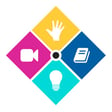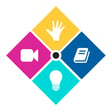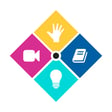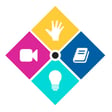Become a Creator today!Start creating today - Share your story with the world!
Start for free
00:00:00
00:00:01

Outcome Measurement
Transcript
Introduction to Hand Therapy Academy
00:00:05
josh MacDonald
Hi, I'm Josh McDonald.
00:00:06
Miranda Materi
And I'm Miranda Materi, and we are Hand Therapy Academy.
00:00:09
josh MacDonald
So I just got back from the ASHT conference in St. Louis.
Understanding Patient-Reported Outcome Measures
00:00:13
josh MacDonald
And one of the things that came up a couple of different times was patient reported outcome measures, PROMs. And I always get it confused with pass the range of motion when it's, whenever I'm reading it or listening to someone say prom. So, um, but, but they talked about all these different like little research vignettes that they covered all these little things in the conference. And they were talking about lots and lots and lots of different kinds.
00:00:33
josh MacDonald
of patient-reported outcome measures that they use for all these different diagnoses. And some of them were for burn patients, and some were for wrists, and some were for a carpal tunnel. So wanted to touch base a little bit on that.
QuickDash as a Primary Tool
00:00:44
josh MacDonald
Miranda, what do you use as a patient-reported outcome measure in your clinics?
00:00:48
Miranda Materi
We definitely always use the quick dash and we don't usually get too far from do anything else. Bye-bye.
00:00:56
josh MacDonald
okay We are pretty much the same. We're using the QuickDash for pretty much everybody. There are some patients, we see some kiddos, and so there's just not a good patient-reported outcome measure for them. There's too much variability. There's a couple of tests you can use, um but yeah, we're pretty much using the QuickDash for everybody.
00:01:14
Miranda Materi
I think it's too because that's what a lot of like our insurance companies are requiring, right? Like, um so it's kind of just part of our like standard of care and standard of practice.
Challenges with QuickDash
00:01:24
Miranda Materi
And there are times where we're like, well, I think we need to do another outcome measure because this isn't really capturing what we're trying to capture. But I would say that is pretty rare where we'll utilize that or where someone on our team will pull up something different. It doesn't happen that often. And I think another limitation is we have to change um we'd have to enter in extra documentation stuff, right?
00:01:45
Miranda Materi
So when you're in a busy outpatient clinic and you try to find another assessment and it's not within your documentation system, what are you doing?
00:01:45
josh MacDonald
Yeah.
00:01:53
josh MacDonald
Yeah, yeah. and And in a world where we're trying to streamline as many things as possible to be as efficient as possible, it just adds layers to it. Sometimes it's ah it's helpful. It gives you good information. Sometimes I think the QuickDash lacks some things, but it gives us a quick measure that insurance companies know and reference, and we're all speaking the same language.
00:02:14
Miranda Materi
right and then they say oh you I think it's like nine point something or ten point something if you have a ten point change on their scale it means that they've made significant improvements right so they say oh that's good job you guys you're doing a great job in therapy and if you don't then you're like well we didn't quite make as much of a change as we needed to and so I think that is
00:02:27
josh MacDonald
Yeah.
Coaching Patients on QuickDash
00:02:34
Miranda Materi
oh A good thing, but also a limitation if your patients aren't scoring it or they're having a bad day, I feel like they might score it a little differently. So when you're doing it, and I know you're not supposed to, do you do any coaching?
00:02:47
josh MacDonald
We have the same script we give everybody every time. And I think it might be slightly off of the standardized script you're supposed to give people, but we say fill out these 11 questions.
00:02:58
josh MacDonald
Take your whole body into account. and answer as if you're just trying to, like, don't overthink it, just answer the questions as if I gave you a hard, difficult container to open, or if I gave you something to carry, just take it at face value. Because so many people want to like, well, I can't carry something with my left hand because it's fractured. And then, well, but I'm right-handed, so that doesn't, does it matter? And people get caught up in that. So I just try to like, don't overthink it. Could you carry a suitcase kind of thing?
00:03:26
Miranda Materi
Yeah, I know that's a a hard one, right? Because then they'll get really detailed or they'll write in notes on it.
00:03:32
josh MacDonald
and not circle anything, just write in a narrative explanation. Yeah, yeah.
00:03:35
Miranda Materi
a i Okay, we gotta put it in a score for this one.
Patient Awareness and Outcome Measures
00:03:39
josh MacDonald
Yeah, and i'm I would love to have more detail that came with the full dash, but gosh, some of our patients take so long to fill out the 11 question quick dash. I can't imagine giving them the two or three times as many questions to fill out.
00:03:53
josh MacDonald
It would take forever on intake.
00:03:56
Miranda Materi
Right, it would take forever. And I mean, I have done it before too, where I'm like, oh, you go, you can do this in the lobby before your appointment or something, but it does take more significantly more time.
00:04:06
josh MacDonald
Yeah, one of the limitations, ah first of all, we also pretty much don't use any other outcome measures, just that one. One of the limitations I feel like patient recorded outcome outcome measures have across the board is that when you fill them out on intake,
00:04:21
josh MacDonald
your scope, your frame of reference is I just had film like fifth metacarpal fracture. And so you haven't yet explored all of the things of life that you want to get back to. You're in this thin um like polaroid of here's where my function is and I'm um' okay, I'm not awful. But the further in we get, the more aware of their Like if we're doing our job and saying like, well, what other things do you struggle with?
00:04:50
josh MacDonald
Well, I can't play pick a ball and I can't change my oil yet. They get more aware of these deeper layers. And so their score may not reflect their progress because now they're thinking about more depth of life, things that they can't go back to that they weren't even considering on initial intake.
00:05:05
Miranda Materi
Right.
00:05:06
josh MacDonald
So the score doesn't always reflect that.
00:05:06
Miranda Materi
Yeah. That's definitely true.
Beyond QuickDash: The Value of Patient Interviews
00:05:09
Miranda Materi
And you bring up a good point when patients are during the patient interview, I feel like you can capture a lot of these things that you might capture on um an outcome measure, right?
00:05:19
Miranda Materi
If you can really like listen to your patient, you can get a pretty good idea. And then it's making sure your documentation reflects that patient interview.
00:05:27
josh MacDonald
Yeah, yeah. I do feel like if you've done a good thorough interview, you could if you need to do, but you shouldn't fill out the quick dash for them because you should know all of those answers because you had those conversations.
00:05:40
Miranda Materi
Right, yep, definitely.
00:05:41
josh MacDonald
Yeah, yeah. I will say I mentioned earlier the pediatric population. I'll have because insurance companies still want something. I'll use it for kids down as low as like 10 or 12 sometimes.
00:05:54
josh MacDonald
It's still a useful tool. It's no longer following the standardized protocol on how to use it, but it's still a useful cross section of where they are. And I've got lots of people who say, I don't do any how heavy household chores because I've got a maid for that. I say, well, imagine if you did, how would that go? I can say the same thing to a kid and maybe now it's not standardized, but I get a pre and post session or, you know, month read on how they're progressing.
00:06:21
Miranda Materi
Right. Yeah. And that can be very
Research and the Burden of Data Collection
00:06:23
Miranda Materi
helpful. I think another aspect of doing the outcome measures is for research, right? So if we have this large bank of data, it really makes it easier for us to pull data out to measure the success of our interventions.
00:06:39
josh MacDonald
Yeah, yeah. It gives us something to pull back from later on in mass. Lots and lots of lots of data samples.
00:06:47
Miranda Materi
Right. So I think that would be an advantage, but I think the feasibility and how realistic that is, is, is not right. No one wants to fill out another form when they come in, they're already filling out the HIPAA form.
00:06:59
Miranda Materi
Then, you know, like there's so many, we have like seven or eight forms that we just fill out because that's what the attorney says we need to do. Right.
00:07:05
josh MacDonald
Right?
00:07:05
Miranda Materi
And <unk>s and then they have a hurt hand and then you're like, well, and actually, can you fill out five more pieces so we can track your data?
00:07:12
josh MacDonald
Yeah, yeah.
Direct Engagement with Patients
00:07:14
josh MacDonald
We're trying to have as little impact negative impact on them as possible and giving them the long form dash or a second rating or yeah it just adds more negative impact on their their experience.
00:07:25
Miranda Materi
Right, when when what patients really want I feel is for you to really listen to them and understand them, right? They want to be heard or they want to be understood. So I feel like that you don't really always get that from them filling out a piece of paper.
00:07:37
Miranda Materi
You get that from your time spending your time with that patient interviewing them and talking to them.
00:07:37
josh MacDonald
Right.
00:07:43
josh MacDonald
Yeah. Yeah.
Feedback and Contact Information
00:07:44
josh MacDonald
All right. Well, let us know what measures you use. Maybe you have another go-to that you use all the time instead of the quick dash. Let us know. Give us some feedback. And if you have any questions, you can reach us at our email info at handtherapyacademy.com or on our social media platforms, handtherapyacademy.



